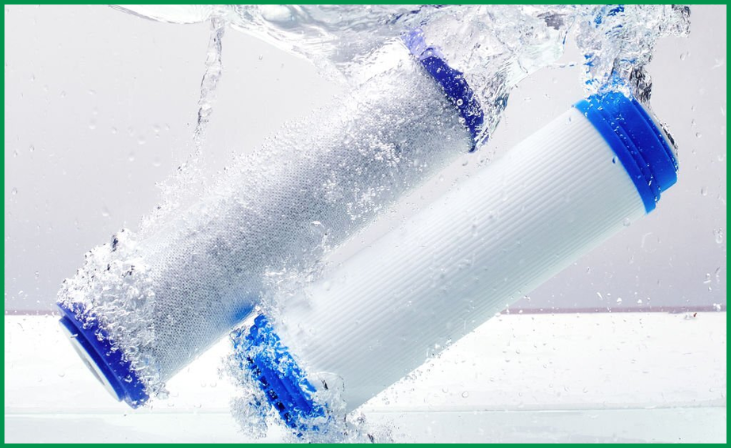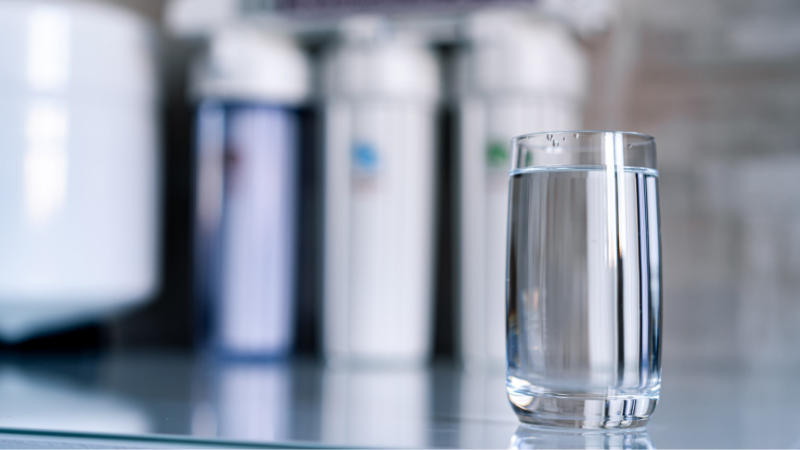In a world where access to clean drinking water is increasingly vital, the importance of effective water purification cannot be overstated. Among the various methods available, carbon filter water purifiers stand out for their ability to provide clean, great-tasting water without stripping away essential minerals. This comprehensive guide aims to delve deep into the workings of carbon filter water purifiers, exploring their benefits, types, installation, maintenance, and more.
What is a Carbon Filter Water Purifier?
At the heart of every carbon filter water purifier lies activated carbon, a highly porous material with an immense surface area. The process of filtration occurs through adsorption, where contaminants in the water adhere to the surface of the carbon filter. This method effectively traps impurities such as chlorine, volatile organic compounds (VOCs), pesticides, and herbicides, ensuring that the water emerging from the purifier is free from harmful substances.
Advantages of Carbon Filter Water Purifiers
The advantages of carbon filter water purifiers extend beyond simple filtration. Not only do they remove impurities, but they also retain essential minerals present in water, thereby maintaining its nutritional value. Additionally, carbon filtration significantly enhances the taste and odor of water, making it more palatable and enjoyable to drink.
Types of Carbon Filter Water Purifiers

Carbon filter water purifiers come in various forms, each catering to different needs and preferences. Pitcher filters offer convenience and portability, making them suitable for small households or travel purposes. Faucet-mounted filters provide on-demand filtration directly from the tap, while under-sink filters offer a more permanent solution for larger volumes of water. Whole-house filtration systems, as the name suggests, purify water at the point of entry into the home, ensuring that all water outlets deliver clean, filtered water.
Factors to Consider When Choosing a Carbon Filter Water Purifier
Selecting the right carbon filter water purifier requires careful consideration of several factors. Water quality plays a crucial role, as different purifiers may be better equipped to handle specific contaminants. Flow rate determines how quickly water is filtered, while filter lifespan dictates maintenance requirements and ongoing costs. Installation considerations, such as space constraints and plumbing compatibility, also play a significant role in the decision-making process, along with budget considerations to ensure affordability.
Installation and Maintenance of Carbon Filter Water Purifiers
The installation process for carbon filter water purifiers varies depending on the type of purifier chosen. However, most systems come with detailed instructions that make installation relatively straightforward for DIY enthusiasts. Regular maintenance is essential to ensure optimal performance, with tasks such as replacing filter cartridges and cleaning components recommended at specified intervals. By following manufacturer guidelines, users can prolong the lifespan of their purifier and enjoy consistent, high-quality water.
Comparing Carbon Filter Water Purifiers with Other Types
While carbon filter water purifiers offer effective filtration for a wide range of contaminants, it’s essential to compare them with other types of water purification systems to make an informed decision. Reverse osmosis systems, for example, provide more comprehensive filtration by removing microscopic impurities and dissolved solids. UV filters utilize ultraviolet light to disinfect water, targeting bacteria and viruses. By understanding the strengths and limitations of each system, consumers can choose the most suitable option for their specific needs.
Common Misconceptions about Carbon Filter Water Purifiers
Despite their effectiveness, carbon filter water purifiers are not immune to misconceptions. One common myth is that they remove beneficial minerals from water, leading to demineralization and potential health risks. However, studies have shown that carbon filtration selectively removes harmful contaminants while leaving essential minerals intact, ensuring that purified water remains safe and nutritious to consume.
Environmental Impact of Carbon Filter Water Purifiers

In an era where environmental sustainability is paramount, the impact of water purification systems on the planet cannot be overlooked. Carbon filter water purifiers offer a more eco-friendly alternative to bottled water, reducing plastic waste and carbon emissions associated with production and transportation. By opting for reusable filters and responsibly disposing of spent cartridges, users can minimize their ecological footprint while enjoying the benefits of clean, purified water.
The Future of Carbon Filter Water Purifiers
As technology continues to advance, the future of carbon filter water purifiers looks promising. Innovations in filter materials and design are paving the way for more efficient and sustainable purification solutions. Smart filtration systems equipped with sensors and monitoring capabilities are poised to revolutionize the way we access and consume clean water, providing real-time insights into water quality and usage patterns.
Case Studies and Reviews
Real-world experiences and expert opinions provide valuable insights into the effectiveness and reliability of carbon filter water purifiers. Customer testimonials offer firsthand accounts of user satisfaction, highlighting the impact of purified water on health and well-being. Expert reviews and studies provide scientific validation of carbon filtration technology, reinforcing its position as a trusted method for water purification.
Health Benefits of Drinking Carbon-Filtered Water

Beyond taste and purity, carbon-filtered water offers a myriad of health benefits. By removing harmful contaminants and impurities, carbon filter water purifiers promote better hydration, aiding in digestion and detoxification processes. The absence of chlorine and other chemicals further enhances the safety and palatability of drinking water, encouraging individuals to stay hydrated and maintain optimal health.
Tips for Using Carbon Filter Water Purifiers Effectively
To maximize the benefits of carbon filter water purifiers, users should follow the usage guidelines provided by the manufacturer. This includes regularly replacing filter cartridges, cleaning components, and monitoring water quality. By maintaining proper filtration standards, users can ensure that their purifier continues to deliver clean, purified water for years to come.
Conclusion: Carbon Filter Water Purifiers
In conclusion, carbon filter water purifiers offer a reliable and efficient solution for ensuring access to clean, pure water. From their ability to remove impurities and enhance taste to their environmental sustainability and health benefits, carbon filter water purifiers provide numerous advantages for households and communities alike. By understanding the technology behind these purifiers and implementing best practices for installation and maintenance, individuals can enjoy the peace of mind that comes with knowing their water is safe, healthy, and delicious.
FAQ’s
How often should I replace the carbon filter?
The frequency of filter replacement depends on usage and water quality. Typically, it is recommended to replace the filter every 2-6 months.
Can carbon filter water purifiers remove all types of contaminants?
While carbon filtration is effective against many contaminants, it may not remove certain impurities such as heavy metals or microbes. For comprehensive filtration, additional treatment methods may be required.
Are carbon filter water purifiers suitable for well water?
Yes, carbon filter water purifiers can effectively remove common contaminants found in well water, such as sediment, chlorine, and organic compounds. However, for specific contaminants, additional filtration may be necessary.
Can carbon filters remove fluoride from water?
Carbon filters are not specifically designed to remove fluoride from water. To remove fluoride, specialized filtration systems such as reverse osmosis or distillation may be necessary.







Leave a Reply